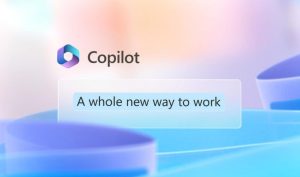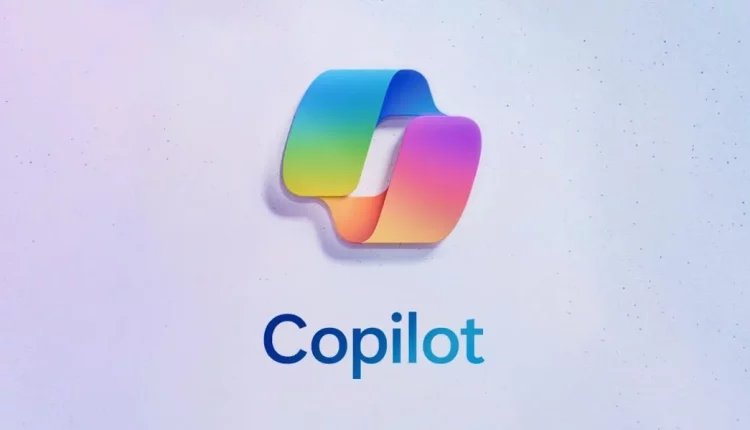©2021 Reporters Post24. All Rights Reserved.
At Microsoft’s AI event in September, the company unveiled an AI assistant Copilot in Windows 11 that can accomplish many high-level tasks just by you asking it.
When I was in grade school, once a week our teacher would line us up and walk us down to the computer lab. There, we would fidget in our seats, clacking away at the tactile beige IBM keyboards while the low whine of CRT monitors filled the room. Windows 98 would load up, and our teacher would have to come, one by one, to type in the password and log us in.

It took years of going to computer labs throughout middle school and high school to fully familiarize myself with the inner workings of Windows. Becoming a “power user” needed classes and extensive Google searches to gain some degree of mastery.
In hindsight, it’d have been so much easier if Windows could do things just by my asking it.
At Microsoft’s AI event in September, the company unveiled Copilot, an “AI companion” that can accomplish all sorts of tasks with a simple ask. This includes enabling dark mode, summarizing documents or removing backgrounds in images, all without knowing specific hotkeys or complicated steps. In demos, Microsoft said the goal is to turn every Windows 11 user into a power user. This means using the same language comprehension tech powering ChatGPT to accomplish tasks automatically. In one sense, it could mean the era of having to learn Windows is coming to an end.
The new direction for Windows is an about-face for Microsoft, the company that created the world’s most popular operating system, first launched in 1985. Windows’s graphical user interface has been centered on windows and file structures, largely sticking to that formula for nearly 40 years. But as Google popularized online search, using keywords to find answers, that philosophy too trickled down into operating systems. By 2006, Windows Vista had the ability to search for specific files and functions forgoing the need to have all your files neatly organized.
As AI chatbots like ChatGPT changed how people access information, Microsoft was quick to make its mark. The company upped its investment into OpenAI, the creators of ChatGPT, earlier this year and added generative AI capabilities to its Bing search engine. Google and Apple too have been integrating more AI elements into their apps and operating systems, as have many other companies. As AI proliferates, with even the CIA making its own AI to compete with China, it’s expected to upend entire markets. Generative AI is estimated to add $4.4 trillion to the global economy.
At the moment, Copilot is still in the early stages and it doesn’t mean Windows can be used intuitively without prior experience. Windows 11 with Copilot is still very much Windows, with the Start menu, individual programs and other keyboard shortcuts in play. Still, Copilot is that first step toward making computing more human-friendly, but it may require its own knowledge base.
“Just knowing what to ask is still gonna require some education,” said Avi Greengart, lead analyst at Techsponential. “So, knowing that Copilot can even do that is going to shock a lot of people.”
The power of Copilot comes not only in its ability to handle Windows settings but also being able to work between different applications automatically. For example, when copying a block of text from a long article on Edge, Windows’ built-in web browser, Copilot will appear and can instantly summarize it. Or importing a Word document into PowerPoint can automatically create a slideshow presentation, packed with images and presenter notes.
This level of inter-app operability is akin to science fiction, like when Iron Man protagonist Tony Stark asked his AI assistant Jarvis to instantly create 3D holographic models to help him make new scientific discoveries.
Copilot isn’t all-powerful, however. Many of the tasks it can accomplish are more surface-level. Asking it to go deep into the registry files to change a specific setting is something Microsoft hasn’t equipped Copilot with. For these tasks, it’s back to the forums.
“I don’t think it necessarily completely upends how we interact with our computers or how we learn about how to use them,” Greengart said. “I’m pretty sure that YouTube how-tos are going to be popular — maybe even more popular — with people sharing tips and tricks on how to use Copilot to basically run extensive macros.”
Carolina Milanesi, principal analyst at Creative Strategies, feels Copilot will become a person’s personal assistant, being able to analyze, summarize, and reply to emails or give suggestions for podcast episode titles in seconds. She puts it in stark contrast to Amazon’s Alexa, which is more about selling a personality, much like the movie Her. In Milanesi’s opinion, people care more about day-to-day productivity than having a robot read you a bedtime story.
“I just think consumers want Jarvis at the end of the day.”


